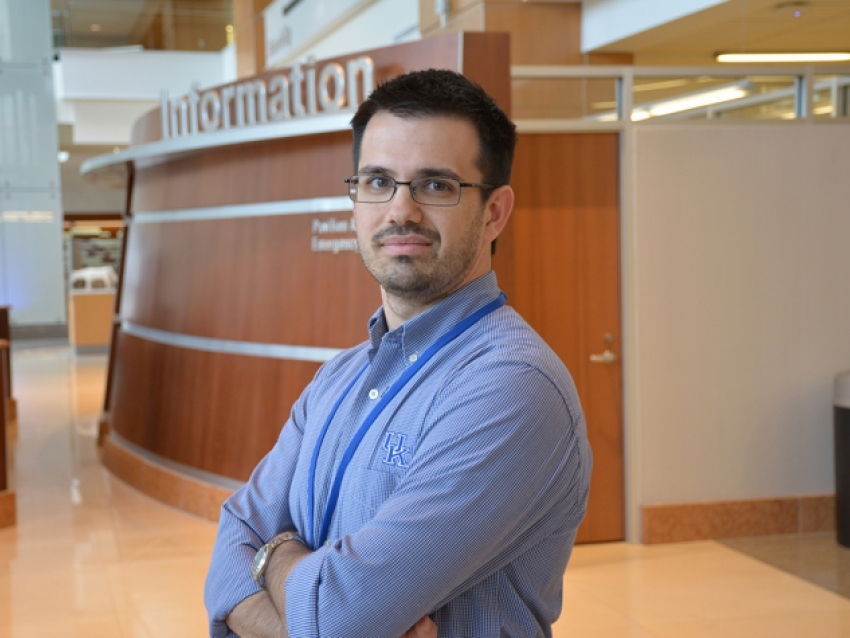
From Student to Professor - One Alum's Journey
A graduate of the Class of 2010, Doug Oyler has dedicated his time pushing the University of Kentucky College of Pharmacy (UKCOP) further and educating future generations of pharmacy students.
Oyler’s journey began with his residency at UK HealthCare, where he later served as a trauma pharmacist, the catalyst for his opioid research. Oyler then developed the hospital's opioid stewardship program in 2016, focusing on safe prescribing practices. His opioid research and his collaboration with hospitals across Kentucky contributed to him receiving the American Society of Health-System Pharmacists Best Practice Award in 2019.
Today, Oyler is back at UKCOP, where he applies his unique skill set to keep the college at the forefront of pharmaceutical education. He works alongside his good friend and mentor, Frank Romanelli. Romanelli and Oyler connected during Oyler’s residency and fellowship. Oyler learned from Romanelli and cited Romanelli as a significant influence and mentor on research, writing, and his role as a faculty member.
Oyler's drive and determination have allowed him to improve on the foundation of UKCOP as well as his personal life. He continues to be a valued member of our faculty and has had a profound impact on the college and Kentucky.
